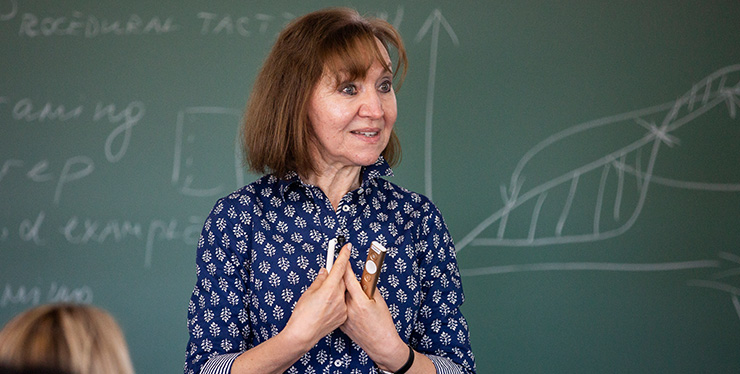Playing to win: Leadership and sustainability at ESB Electric Utility
In 2007, the Irish electric utility, Electricity Supply Board (ESB) – 95% publicly owned-, contributed 15% of Ireland’s greenhouse gas emissions. It owned the largest point sources of the country’s rising carbon dioxide emissions. Due to extraordinary economic development, Ireland’s greenhouse gases emissions were continually rising. The situation was clearly untenable. In March 2008, ESB’s chief executive Padraig McManus made the startling announcement that the company would become a net-zero carbon emitter by 2035, and would still remain competitive. Under his leadership, ESB was going to lead the way in slowing the growth of Ireland’s GHG emissions. He declared that to achieve this goal, ESB would invest €22 billion over 15 years to develop alternative clean technologies, including energy efficiency measures, the use of clean coal, and the connection of an electricity-generating wind farm to the national grid. His target would make ESB the world’s first carbon-neutral electric utility. This strategy presented a number of significant risks: 1) Financial risk – the €22 billion capital investment had to succeed. 2) Technological and ecological risks – the strategic framework relied on clean coal technology, still being developed. 3) Credibility risk – what if ESB was not able to achieve its goal? 4) Stakeholder risk – Landowners, concerned over health, environment and property prices, were ready to oppose the wind farms. McManus was conscious of the risks, and he also knew that high performing leaders always take risks even while confronting dilemmas such as: Could an electric utility achieve a zero carbon footprint and remain competitive? Can a responsible leader risk jeopardizing the present and future well-being of his company, the environment, and his country? Could he exert his leadership by influencing Irish, and possibly European, climate policy? The case provides an opportunity for a debate on responsible leadership. It was written for use in senior executive and MBA programs.
1) How can responsible leaders balance the competing pressures for economic performance, ecological protection and social responsibility and continue growing the business? 2) What kinds of risks can responsible leaders undertake? 3) How can responsible leaders create value for their shareholders and stakeholders? 4) Can the leader of small European electric utility influence the entire European electric utility sector?
Electricity Supply Board, Energy, Power Generation
2007-2010
Cranfield University
Wharley End Beds MK43 0JR, UK
Tel +44 (0)1234 750903
Email [email protected]
Harvard Business School Publishing
60 Harvard Way, Boston MA 02163, USA
Tel (800) 545-7685 Tel (617)-783-7600
Fax (617) 783-7666
Email [email protected]
NUCB Business School
1-3-1 Nishiki Naka
Nagoya Aichi, Japan 460-0003
Tel +81 52 20 38 111
Email [email protected]
IMD retains all proprietary interests in its case studies and notes. Without prior written permission, IMD cases and notes may not be reproduced, used, translated, included in books or other publications, distributed in any form or by any means, stored in a database or in other retrieval systems. For additional copyright information related to case studies, please contact Case Services.
Research Information & Knowledge Hub for additional information on IMD publications
On paper, everything with the project looked fine. Deadlines were being met, the work was on track, and meetings ran efficiently. But beneath the surface, this high-performing manager told us, “I was holding it together on the outside, yet inside,...

Walk into almost any organisation and you will hear the same refrain: ‘We promote on merit here.’ Yet the data keeps telling a different story. Women are still underrepresented in senior roles, even in sectors where they make up most of the workfo...

Microaggressions are subtle, often unintended slights that quietly undermine confidence, belonging, and performance. Their cumulative impact erodes trust and psychological safety, slowing careers and driving attrition. This article examines how mi...
Anger, envy, vulnerability: We don't like to show all our feelings publicly. But those who suppress them are sometimes surprised by involuntary outbursts. It's better to make peace with the parts of yourself you don't like. All you need are two ch...
How often has your team changed lately? A new member joins. A key player exits. Roles shift. Strategy evolves. A conflict brews. Performance dips. Today’s teams are in constant flux—reshaped by both internal dynamics and external pressures. And ye...
Les études de cas de HBR sont basées sur des problèmes vécus par des dirigeants d’entreprise et proposent des solutions d’experts. Celle-ci est tirée de l’étude de cas de l’Insead « Stress and the City (A&B) : Antonio Horta-Osorio, CEO of Lloyds B...
The most ambitious burn out first: How to use the holidays to get stronger instead of just surviving.
Research Information & Knowledge Hub for additional information on IMD publications
in I by IMD
Research Information & Knowledge Hub for additional information on IMD publications
Research Information & Knowledge Hub for additional information on IMD publications
Research Information & Knowledge Hub for additional information on IMD publications
Research Information & Knowledge Hub for additional information on IMD publications
in I by IMD Magazine September 2025, no. 19, pp. 78–79
Research Information & Knowledge Hub for additional information on IMD publications
Research Information & Knowledge Hub for additional information on IMD publications
Research Information & Knowledge Hub for additional information on IMD publications
Research Information & Knowledge Hub for additional information on IMD publications
Research Information & Knowledge Hub for additional information on IMD publications



